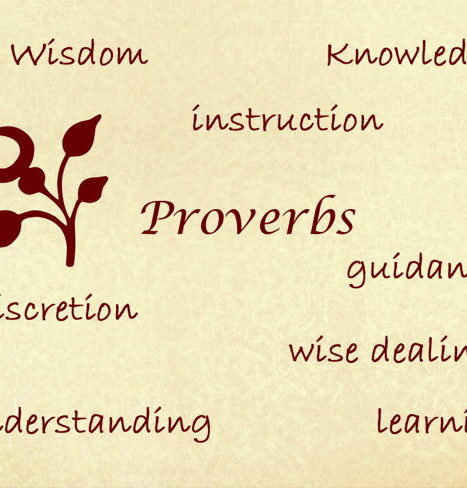
Wisdom of proverbs. An article that analyzes the importance of great proverbs that is the best sentences of wisdom and irony in the English language and culture.
For proverbs are the pith, the proprieties, the proofs, the purities, the elegancies, as the commonest so the commendablest phrases of a language. To use them is a grace, to understand them a good.
John Florio
To long for that which comes not. To lie a-bed and sleep not. To serve well and please not. To have a horse that goes not. To have a man obeys not. To lie in jail and hope not. To be sick and recover not. To lose one’s way and know not. To wait at door and enter not, and to have a friend we trust not: are ten such spites as hell hath not.
John Florio
Proverbs are the traditional (historic) sayings of a country. They are short, clever sentences that usually offer life advice. Native English speakers often use them in conversation without even realizing it. Proverbs can teach you more about a country’s culture than any textbook. They show what’s important to the group of people, what is considered good behavior and what is bad behavior. Proverbs can also tell you the history of a place. For example, proverbs from farming towns will use a lot of farming language, and fishing villages will talk about the sea.
However if English proverbs are a heritage of the conventional wisdom of the nation, then on the whole they are a depressing lot. A great number fall under the heading of “Murphy’s Law”: “If anything can go wrong, it will.” The phrase was coined in the 1940’s, but Murphy and his colleagues weren’t the first members of the human race to realizes this sad fact of life. This general attitude of mind takes many forms. Imagine the desperate condition of the man who conceived the adage “Nothing is certain but death and taxes.” He probably wrote it down a few seconds before confirming for himself the former of these two certainties. The principle is that even gifts from above are merely curses in disguise for has it not been said that “The gods send nuts to those who have no teeth?”
Therefore, proverbs not only help us to better understand a language, in this case the English one, but they also can tell us a lot about the culture, the different feelings, and the real essence of a nation and also of the whole human race and its sad, but also funny, world. Bitter experience in warfare has equipped the language with a wide range of expressions in a similar ironic tone. One can almost hear the dry resignation of the gentleman officer who decide that “Providence is always on the side of big battalions.” But it must have been someone lower in the ranks, a professional Falstaff perhaps, who created the fittingly immortal “He who fights and runs away, may live to fight another day.”

You have probably spent a long time learning new words. Words, however, do not just come individually, they also come in expressions – in groups. That’s why proverbs and idioms are among the most common of these expressions. There are thousands of them in English, and of course in every language, but you can’t obviously translate them literally, even because most of the times they are used metaphorically, that is in a non-literal way. Idioms and proverbs in English are sets of words that have specific meanings, draw out the essence of the English culture. These word chunks or expressions are figurative in nature, the meaning of which cannot be deduced from literal definitions of words. Used frequently by native language speakers, these expressions bring out the unique flavour to the English language.
What is a metaphor? Metaphors exist in all languages. You use them in your own language. A metaphor uses one idea to stand for another idea. Let’s take this simple idea for example: A crowd is water. When you have that idea in your mind, the crowd can flow, flood, or trickle. That’s why when we write or talk we can say, – Time is money. We save time. We can spare minutes. We can run out of time. – or Business is war, meaning that advertising is a minefield in which you have targets and keep your sights on what your competitors are doing. Part of the attraction of these notions is their perennial plausibility. The idea that “If you want peace, you must prepare for war” is one half of the Cruise missile debate in Europe. Yet it was first given a nifty turn of phrase by Vegetius in his “Epitoma Rei Militaris.” Though of course, there have been quite a few wars since then.
There are thousands of proverbs and saying in every language, and perhaps the most famous and valuable are those written in the Bible. Anyway some of them, which have survived the bad weather, the ruins and the decadence of time, nowadays still have a great moral value for everyone, and we can easily understand this idea reading for instance sentences such as these: A friend in need is a friend indeed. A little learning is a dangerous thing. Actions speak louder than words. It is no use crying over spilt milk. The grass is always greener on the other side of the fence. Still waters run deep. It’s better to be safe than sorry. Two wrongs don’t make a right. It takes two to tango. Don’t put all your eggs in one basket. Be good and if you can’t be good, be careful. Easy come, easy go. And last but not least, the most important of all, that is – Cash is the king. –

Most proverbs work better if performed in the correct style. One should perfect a certain slow, sage nodding of the head, combined with a measured tone of voice, pregnant with the acquired wisdom of centuries. Only prolonged rehearsal in these skills can make possible an attempt on less inspired sayings. Then no one will dare contradict you when you confidently declare that “A door must be either shut or open.”
How much do proverbs say about the character of a nation? Are some sayings quintessentially English? There is the patriotic assertion that “One Englishman can beat three Frenchman,” which was started by no less an authority than William Shakespeare. But one suspects that corresponding terms might be found in France, with roles reversed. More genuinely original is the delightful phrase, “Life isn’t all beer and skittles”, which is not just specifically English, but specifically northern English. Another one from the north is this staunches expression of a Yorkshireman’s independence of mind: “Hear all, see all, say nowt, take all, keep all, gie nowt, and if thee ever does owt for nowt, do it for thysen.” Well, it certainly has personality.
Some proverbs do manage to retain a whiff of individuality even though they are conventional in content. “Love and a cough cannot be hid” is a vigorously different angle on an old idea. Or, for those unfortunate Englishmen who have always resented sitting through hours of unintelligible Italian opera, there is excellent advice: “The opera isn’t over until the fat lady sings.”

The irritating thing about proverbs is their tendency to contradict themselves. Whichever side you take, there’s a saying for it. On the one hand, we are advised “Do as I say, not as I do.” We are then roundly informed “Example is better than precept.” Perhaps the best course of action is to take just one more proverb and turn it round against the whole species” of them: “Believe nothing of what you hear, and only half of what you see.” But there’s an answer to that: “What everybody says must be true.”
Finally, since idioms and proverbs of the English language are commonly used in the written and reading form, both in formal and informal situations, the extensive use of these prefabricated units makes them important teaching aspects for learning the language. Therefore here you can find some useful links to some proverbs quiz tests that you can use in a profitable way while teaching or doing some didactic activities with your children.
Quotes and aphorisms on proverbs

